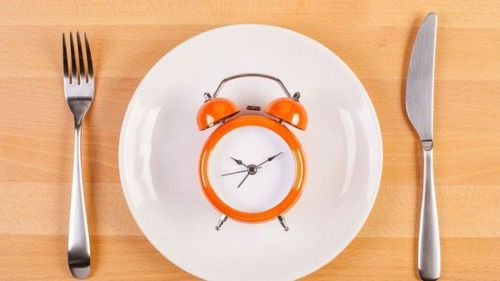This is an automatically translated article.
Breakfast is considered a healthy meal and even more important than other meals. Eating breakfast helps us lose weight, and skipping it can increase the risk of obesity. This article takes a detailed look at breakfast, and is skipping it really bad for your health?
1. People who eat breakfast tend to have healthier habits
Many studies show that people who eat breakfast tend to be healthier than those who don't. They are less likely to be overweight/obese and have a lower risk of certain chronic diseases. For this reason, many experts have claimed that breakfast is good for us. However, observational studies cannot prove causation. Although studies show that people who eat breakfast are more likely to be healthier, they can't prove that breakfast itself causes it. Because chances are that breakfast eaters have other healthy lifestyle habits that can explain this. For example, people who eat breakfast also tend to eat a healthier diet, with more fiber and micronutrients. On the other hand, people who skipped breakfast tended to smoke more, drink more alcohol, and exercise less. Perhaps these are the reasons that breakfast eaters are healthier.
2. Breakfast does not increase metabolism
Some people think that breakfast kicks in the metabolism, but that's not the case. Because it doesn't actually increase the amount of calories burned that occurs after eating. However, what is important for metabolism is the total amount of food consumed throughout the day. It makes no difference at what time, or how often, you eat. Studies show that there is no difference in the amount of calories burned in 24 hours between people who eat or skip breakfast.

Thời điểm ăn không ảnh hưởng đến quá trình trao đổi chất
3. Skipping breakfast to lose weight is right or wrong?
Breakfast skippers tend to weigh more than breakfast eaters. This seems paradoxical, because if you don't eat, why can you gain weight? Some people suggest that the reason for the weight gain when skipping breakfast is because skipping breakfast makes you so hungry that you overeat at the end of the day.
It is true that skipping breakfast makes us hungrier and eats more at lunch, but this is not enough to make up for the breakfast that was skipped. In fact, skipping breakfast can reduce your overall calorie intake by up to 400 calories per day. This seems logical, because you are effectively eliminating an entire meal from your diet each day.

Việc bỏ bữa sáng có thể làm giảm lượng calo tổng thể của một ngày
After 4 months, there was no difference in weight between groups. It simply doesn't matter whether people eat or skip breakfast. These results are supported by other studies on the impact of breakfast habits on weight loss. Skipping breakfast has no obvious effect.
4. Skipping breakfast may even have some health benefits
Skipping breakfast is a common part of many intermittent fasting methods, including the 16/8 method. That is 16 hours overnight followed by an 8 hour eating time frame. This mealtime frame typically ranges from lunch to dinner, which means you skip breakfast every day. Intermittent fasting has been shown to effectively reduce calorie intake, increase weight loss, and improve metabolic health. However, it's important to mention that intermittent fasting or skipping breakfast isn't right for everyone, it has effects that vary from person to person. Some people may experience positive effects, while others may experience headaches, low blood sugar, fainting, and lack of concentration.

Bỏ bữa có thể có ích đối với những người đang giảm cân
5. Breakfast is just your choice
The evidence is clear, nothing special about eating breakfast, as long as you eat healthy for the rest of the day. Breakfast doesn't boost your metabolism and skipping it won't cause you to overeat and gain weight. Eating or fasting is your choice. If you feel hungry in the morning and you like breakfast, go ahead and eat a healthy breakfast with a protein-rich breakfast is best.
However, if you don't feel hungry in the morning and don't feel that you need breakfast, don't eat it.
Even so, you still have to consider the harmful effects of skipping breakfast. Skipping breakfast can cause your body to lose its rhythm when fasting and eating. When you wake up, the amount of sugar your body needs to make your muscles and brain work at its best is usually low. Breakfast helps supplement those. If your body doesn't get that fuel from food, you may feel drained of energy — and you'll be more likely to overeat later in the day. Breakfast also gives you a chance to get some vitamins and nutrients from healthy foods like milk, whole grains, and fruit.
Reference source: webmd.com; healthline.com













